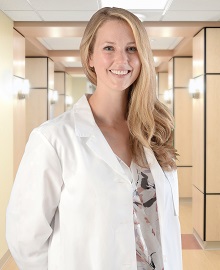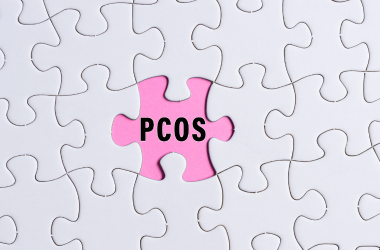Saratoga Hospital Medical Group - Allergy and Clinical Immunology focuses on meeting the needs of patients of all ages who have mild to severe allergies and immunodeficiencies.
Our allergy medicine physician, or "allergist," specializes in diagnosing and treating allergies and asthma as well as diagnosing and managing immunodeficiencies.
An allergy occurs when your body overreacts to something that should be harmless. Some of the most common allergens include pollen, mold, animal dander, and certain foods. The allergy medicine team also works with patients experiencing drug allergies, allergic asthma, latex allergy, contact dermatitis, and others. When an allergic reaction occurs, the patient's immune system goes into overdrive, creating symptoms that range from mild to life-threatening. Our physician helps patients identify allergy triggers, helps patients manage them, and makes sure patients know what to do when they have an allergy attack. Our physician will discuss over-the-counter options, medical prescriptions, and lifestyle changes with patients to help them avoid allergy triggers in their environment.
Immunodeficiencies exist when the body is unable to handle common infections, leading to a recurrent need for antibiotics and, at times, hospitalizations. Immunodeficiencies are typically diagnosed in infancy and childhood but can be diagnosed in adulthood as well, with some cases resulting from treatment for cancer or autoimmune conditions. Diagnosis of an immunodeficiency usually involves blood work and testing responses to vaccines. Treatment varies, but can involve infusions of antibodies to help patients fight infections.
Saratoga Hospital Medical Group - Allergy and Clincial Immunology offers our patients a board-certified, fellowship-trained physician, employing advanced diagnostic techniques and treatments to help allergy patients of all ages improve their quality of daily life. Among other concerns, our allergist diagnoses, treats and manages allergies, asthma, and immunologic disorders including primary immunodeficiency disorders.
Dr. Lorelei Bourla leads our allergy and clinical Immunology services. Along with her team, they are all committed to providing personalized, compassionate care, working closely with a patient's primary care provider and other specialists as needed.

“Once an allergy is identified, I do my best to provide patients with individualized care, helping them to avoid allergy triggers at home and throughout their day. I educate them on the correct use of the medications and devices that provide relief and will spend time educating family members as well, if appropriate. I want my patients to know that I am a resource for them throughout any changes in their lives, so they can be safe and comfortable wherever they go.”
To view a list of all of our providers, please click here.
For location specific information, please click below.

Click on any service to view more information.
Following a consultation and medical history review, our physician will discuss the various allergy testing options available for the patient's specific concern, should they be necessary, as well as treatment options. Most minor allergy symptoms can be treated with antihistamines, corticosteroids, or decongestants. Saline nasal rinses can be used for nasal allergy symptoms.
Evaluation of the immune system consists of a simple blood draw. Your physician will determine which tests are necessary, but they may include evaluation of the various cells and proteins of the immune system, such as the B cells (which generate antibodies, T cells and NK cells. These cells work together to help fight off infections.
Laboratory Services→
Eczema is an itchy skin rash that is common throughout childhood and can be present in adults as well. Testing is often unnecessary given its characteristic appearance. Treatment is aimed at identification/elimination of triggers, if present, and improvement of the skin barrier through topical creams and ointments.
Allergen immunotherapy is a long-term treatment option for chronic allergy symptoms. Allergy shots help the body to build tolerance to benign proteins such as animal danders and pollens. Over time, allergy shots may reduce symptoms related to environmental allergens and allergic asthma.
A pulmonary function test helps us determine how well your lungs are working. We provide spirometry right in the office, a simple test to measure how much air you inhale, how much you exhale and how quickly you exhale. Additionally, we provide the methacholine challenge, (a test to determine asthma), and a full set of lung function tests to measure lung volumes and diffusion capacity.
Diagnostic Center →
After obtaining a thorough history, your physician may offer skin testing or direct oral challenges to medications in the clinic to help determine if a drug allergy continues to exist.
Asthma is a chronic, inflammatory condition that is often life-long. It requires regular follow-up. Treatment may include long-term control medications such as inhaled corticosteroids, which treat the inflammation that leads to asthma symptoms. In some cases, using these inhaled medications on a daily basis can reduce or eliminate asthma flare-ups.
A food allergy evaluation typically consists of obtaining a thorough history, followed by skin testing with the food protein in question. If skin testing is positive, blood work is often obtained in order to follow the natural history of the allergy. In some cases, patients will outgrow their allergies, and blood testing can help to indicate when that happens. Oral food challenges can be performed in a supervised setting in the clinic when it is thought that the allergy has been outgrown.





